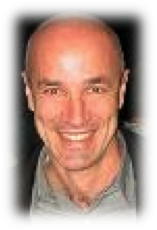Legislators get update on battle against breast cancer
Wednesday, May 16, 2018
Written by: Colin A. Young | Source: Lowell Sun
BOSTON — Researchers trying to fight cancer by identifying what causes the disease in the first place briefed lawmakers and staffers Tuesday on their work to learn more about the environmental causes of breast cancer.
“We’re aiming for actually preventing cancer from arising in the first place,” Dr. Stefano Monti from the Boston University School of Medicine said at the State House briefing to explain the work he and others do in conjunction with the Find The Cause Breast Cancer Foundation.
Unlike the foundations and organizations that study possible ways to treat or cure breast cancer, Find the Cause was founded to focus on identifying what causes the disease in hopes of one day preventing it.
About 1.7 million people in the United States are diagnosed with a form of cancer each year, and breast cancer accounts for about 266,000 of the diagnoses or almost 16 percent. Each year, 41,000 people die of breast cancer, Find the Cause said. In 1945, one in 24 Americans would be diagnosed with cancer and now it is one in eight, the organization said.
The incidence rate of breast cancer in the United States is three times what it is in Mexico and twice what it is in Japan, Dr. David Sherr, a Boston University School of Public Health professor of environmental health, said. Sherr said 425,000 women living in Massachusetts today will get breast cancer, a state incidence rate that is 12 percent higher than the national average.
Bolstered by a study published in 2015 that found that some 70 percent of cancers are preventable, Sherr and others set out to prove that “prevention is the way to go and it’s just a matter of will at this point.”
Their work focuses on the 85,000 or so manmade chemicals that are in regular use in the United States, less than 2,000 of which have been tested for carcinogenicity, Monti said.
“I’m sort of like the guy in the movie who says, ‘I see dead people.’ I don’t see dead people but I do see carcinogens everywhere,” Sherr said at the Tuesday briefing co-hosted by the MASSPIRG Education Foundation. “I see them in the rug, I see them in the flame retardants here, I see them in the smoke, I see them in the plastic here — there is a lot of stuff around you that can do you harm.”
Dr. Charlotte Kuperwasser, a researcher and professor at the Tufts University School of Medicine, said some of these common chemicals — the researchers mentioned pesticides, teflon, flame retardants, chemicals in some cosmetics and more — might make it easier for cancer to grow in the human body.
“It’s hard to get cancer because the body and the tissues are hardwired to prevent these cells from growing, prevent these cells from surviving,” Kuperwasser said. “However, we know from lots of work, that if these cells are exposed to chemicals chronically, then all these checkpoints and things that are put in to prevent breast cancer actually are bypassed.”
Exposing a few cells to cancer is not enough for the disease to expand within the body, Kuperwasser said. The cancer will only spread if, in addition to the exposure, the body’s immune system is shut down or compromised.
“One of the reasons these environmental chemicals are so bad is that they both make these cells crazy and turn them into malignant cells, and then while they’re doing that they shut off the immune system to prevent the immune system from flagging it,” Sherr said.
Tuesday’s briefing was dedicated to the memory of Rep. Chris Walsh, a Framingham Democrat who died May 2 after a battle with cancer. Walsh had been planning to co-sponsor the event.
“He was a buddy of mine, he was my state rep, he was a strong advocate for a better and cleaner environment, and good help for the future. Unfortunately, as we know, cancer won yet again,” Eleanor Anbinder, founder and executive director of Find the Cause, said. “Chris, if you were standing here with us today, I know you would be proud and supportive of the concept of scientific research continuing to look at the environmental causes of breast cancer and other cancers as well.”
